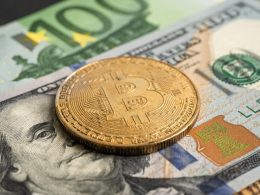Global events play a significant role in shaping currency exchange rates across the world. From political instability to natural disasters, various events can cause fluctuations in currency values, impacting economies, businesses, and individuals alike. Understanding the relationship between global events and currency exchange rates is essential for businesses engaged in international trade, investors, and governments. In this article, we will explore how global events influence currency exchange rates and analyze the key factors that lead to these fluctuations.
Understanding Currency Exchange Rates
Currency exchange rates refer to the value of one currency compared to another. These rates are determined by several factors, including supply and demand, interest rates, and economic conditions of the respective countries. However, they can also be influenced by global events such as economic crises, geopolitical tensions, or even natural disasters.
When events occur that impact the stability of a country’s economy, it can cause a ripple effect on its currency value. Exchange rates are highly sensitive to market sentiment and external influences, and global events often lead to rapid shifts in these values.

How Global Events Influence Currency Exchange Rates
1. Economic Crises
One of the most significant ways global events affect currency exchange rates is through economic crises. A country facing a recession, inflation, or debt crisis can experience a sharp depreciation in its currency value. Investors tend to lose confidence in that country’s economic future, leading to a decline in demand for its currency.
For instance, the 2008 Global Financial Crisis caused a significant depreciation in the value of many currencies, especially those tied to economies heavily reliant on trade with the U.S. and Europe. This created instability in currency markets globally.
2. Political Instability and Geopolitical Tensions
Political instability and geopolitical tensions often lead to uncertainty in financial markets. When a government faces political turmoil or civil unrest, it can negatively impact the country’s economy, and consequently, its currency. For example, Brexit had a major impact on the British pound, causing it to lose value against other major currencies like the U.S. dollar and the Euro.
Similarly, geopolitical tensions such as trade wars, armed conflicts, or diplomatic disputes often result in currency fluctuations. These events can cause panic in the markets, prompting investors to pull their investments from the affected country, which further devalues the currency.
3. Natural Disasters
Natural disasters, such as hurricanes, earthquakes, and floods, can also influence currency exchange rates. While the immediate effect may not always be apparent, the long-term economic impact of a natural disaster can cause significant currency depreciation. Rebuilding efforts, loss of productivity, and damage to infrastructure can lead to reduced investor confidence and negatively affect the currency.
For instance, the devastating earthquake in Japan in 2011 impacted the Japanese yen. The need for financial resources to rebuild infrastructure caused a dip in the yen’s value in the short term.
4. Interest Rates and Inflation
While not an event in the traditional sense, interest rate changes and inflation can be triggered by global economic factors and play a crucial role in influencing currency exchange rates. Central banks, in response to global economic conditions, may adjust interest rates, leading to currency fluctuations.
When a country raises its interest rates, it typically attracts foreign investment, increasing demand for its currency and thus leading to a stronger currency. Conversely, when interest rates are lowered, or inflation is high, it often leads to a depreciation in the currency’s value.
5. Global Trade Policies and Agreements
Global trade policies and agreements have a significant impact on currency exchange rates. Trade agreements between countries can strengthen currencies by increasing trade flows and boosting economic growth. Conversely, trade restrictions or tariffs can weaken currencies by reducing the demand for goods and services, which impacts a country’s economic stability.
For instance, the trade tensions between the U.S. and China led to fluctuations in the Chinese yuan and U.S. dollar, as markets responded to the uncertainty surrounding future trade relations between the two countries.
Analysis of Key Global Events and Their Impact on Currency Exchange Rates
To better understand the relationship between global events and currency exchange rates, let’s analyze some key examples:
| Global Event | Impact on Currency | Analysis |
|---|---|---|
| Brexit (2016) | The British pound fell sharply after the Brexit referendum. | Investors lost confidence in the British economy due to uncertainties surrounding trade deals and economic stability, leading to currency depreciation. |
| U.S.-China Trade War (2018-2020) | The Chinese yuan weakened, and the U.S. dollar experienced fluctuations. | Tariffs and trade barriers created instability, with investors uncertain about the long-term economic implications for both countries. |
| COVID-19 Pandemic (2020-2021) | Global currencies experienced volatility, with the U.S. dollar strengthening initially. | The pandemic caused widespread economic disruptions, with investors seeking safe-haven currencies like the U.S. dollar and gold during the crisis. |
| 2008 Global Financial Crisis | Many currencies depreciated, with emerging market currencies hit hardest. | The financial meltdown caused investor panic, resulting in capital outflows from riskier markets and sharp declines in currency values. |
| Japan Earthquake (2011) | The Japanese yen weakened in the short term but later strengthened. | The immediate economic impact of the earthquake caused a temporary depreciation, but rebuilding efforts later boosted the yen. |
Comparative Table: Currency Exchange Rates Pre and Post Global Events
This table highlights comparative currency exchange rates before and after some major global events:
| Global Event | Currency (Pre-Event) | Currency (Post-Event) | Percentage Change |
|---|---|---|---|
| Brexit (2016) | 1 GBP = 1.48 USD (Pre) | 1 GBP = 1.32 USD (Post) | -10.8% |
| U.S.-China Trade War (2018-2020) | 1 USD = 6.28 CNY (Pre) | 1 USD = 6.96 CNY (Post) | +10.8% |
| COVID-19 Pandemic (2020-2021) | 1 EUR = 1.12 USD (Pre) | 1 EUR = 1.18 USD (Post) | +5.4% |
| 2008 Global Financial Crisis | 1 USD = 0.71 EUR (Pre) | 1 USD = 0.66 EUR (Post) | -7.0% |
| Japan Earthquake (2011) | 1 USD = 83 JPY (Pre) | 1 USD = 81 JPY (Post) | -2.4% |
The Importance of Monitoring Global Events for Currency Exchange
For businesses, investors, and individuals, keeping track of global events is essential when it comes to understanding and predicting currency exchange rates. While some events may have predictable effects on currency values, others can cause sudden and unexpected changes. Staying informed about geopolitical shifts, economic crises, and other significant global events can help mitigate risks and take advantage of favorable currency exchange trends.
Financial institutions and governments also monitor these events closely to implement strategies that protect their economies and stabilize their currencies. Central banks, for example, often adjust monetary policies in response to global economic conditions, influencing currency exchange rates.
Conclusion
The relationship between global events and currency exchange rates is complex and ever-changing. Economic crises, political instability, natural disasters, and global trade policies all play significant roles in influencing the value of currencies around the world. Understanding these dynamics is critical for anyone involved in international finance or trade, as currency fluctuations can have wide-ranging effects on profits, investments, and economic stability.
Monitoring global events and their impact on currency exchange rates can help individuals and businesses make informed decisions, reduce risks, and seize opportunities in a rapidly shifting global market.











